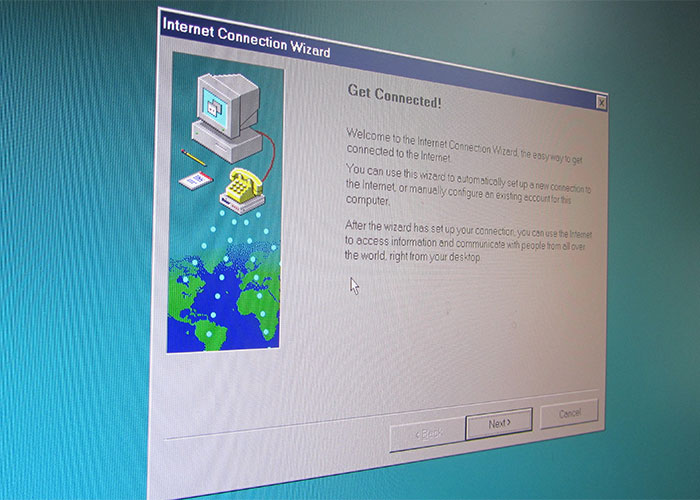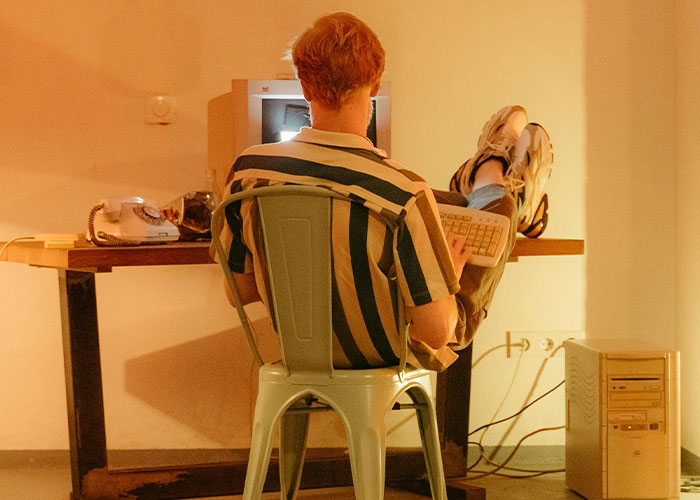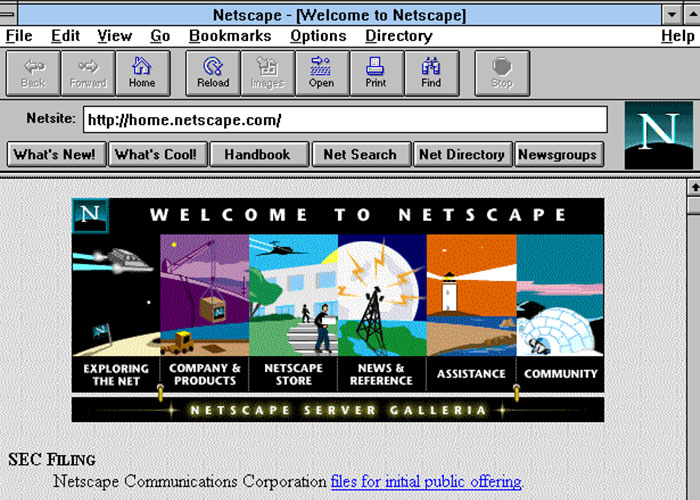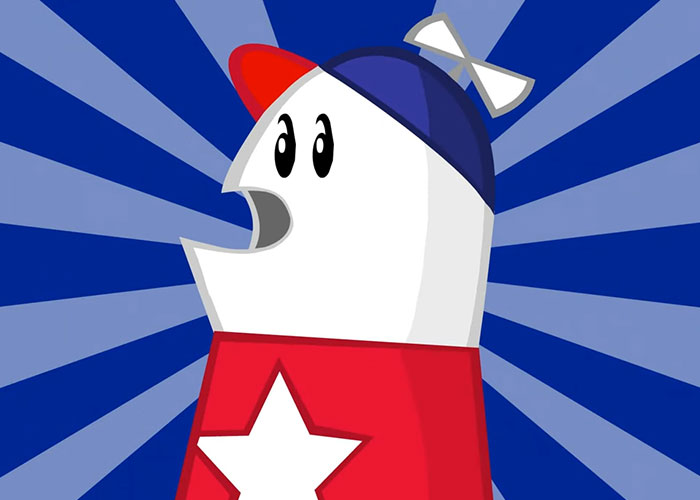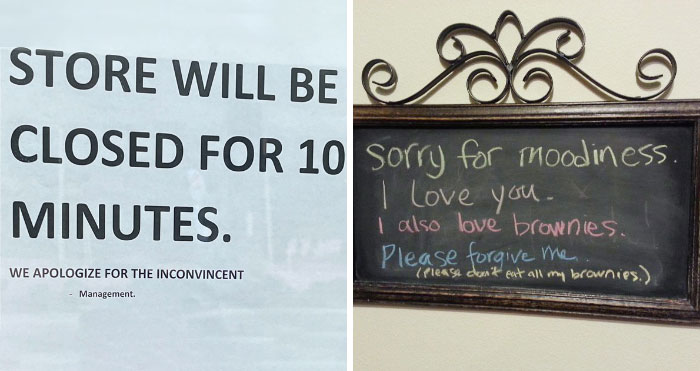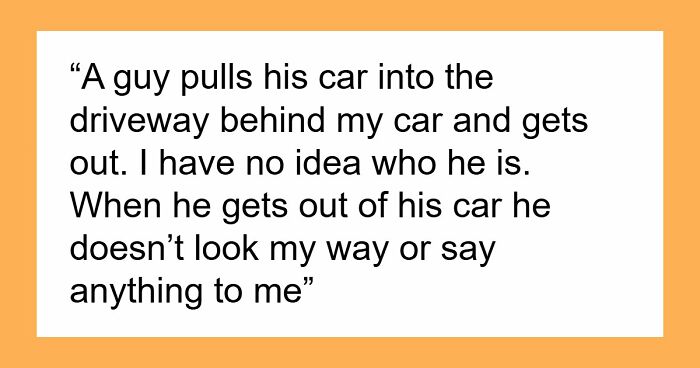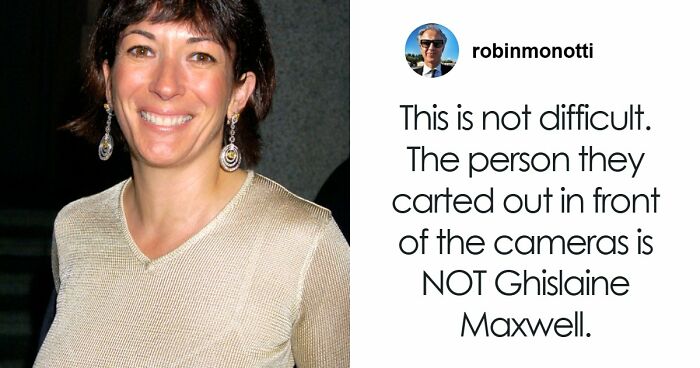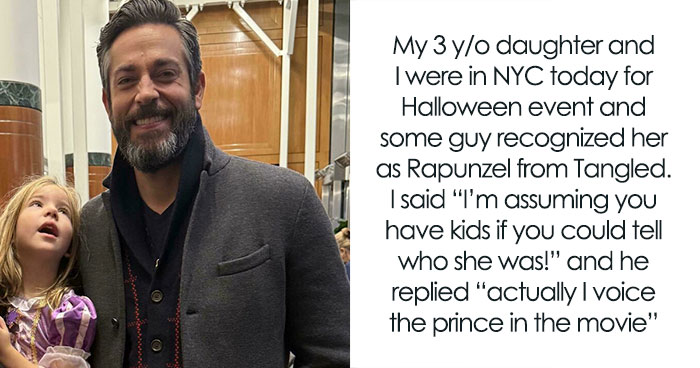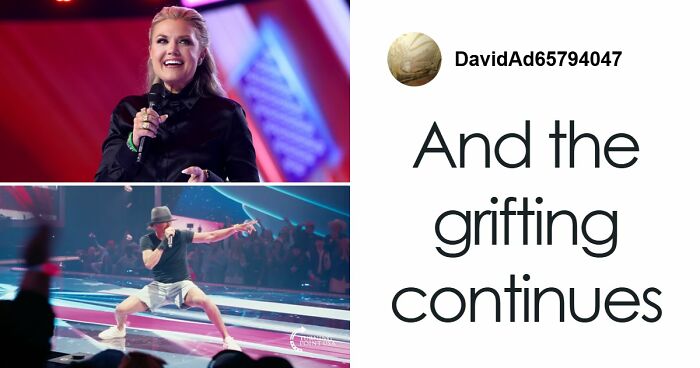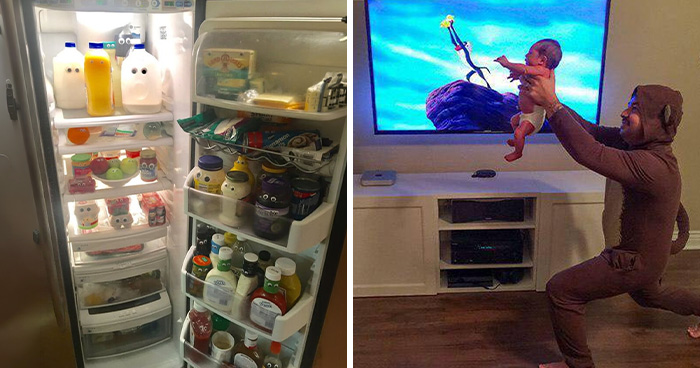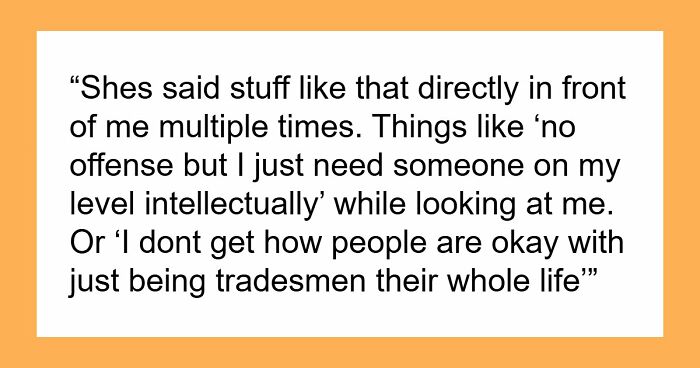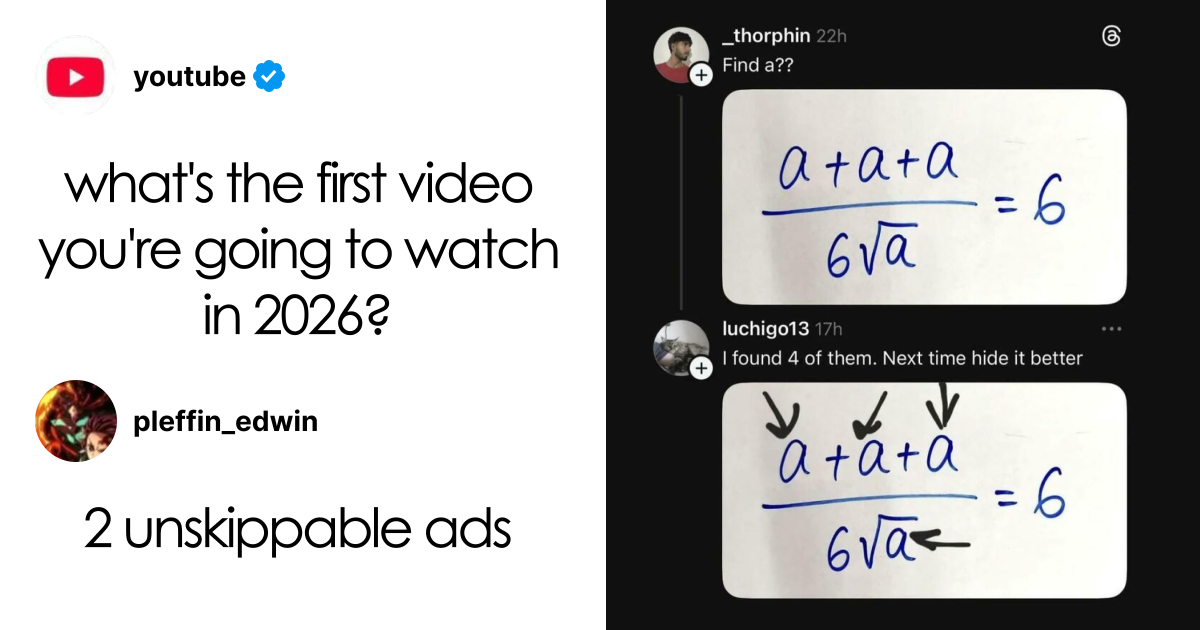
30 Internet Veterans Share The Things That No Longer Exist That May Trigger Repressed Memories
Interview With ExpertUnlike Gen Z kids, we Millennials never had Snapchat, our own smartphones, and 5G. We grew up with chat rooms, one PC per family, and dial-up internet. The early days of the Internet are starting to feel like something ancient, but the World Wide Web actually began in 1989. AOL and IRC were all the rage in the '90s, which makes them more than 30 years old.
The years of the early Internet had a lot of interesting phenomena. That’s why one Redditor decided to ask fellow Internet veterans: “What’s something ancient that only an Internet veteran would remember?” Mine is probably the old-school message boards, specifically the Dragon Ball Z-related ones. If there are any Internet veterans out here, let us know your picks!
Bored Panda reached out to the dean of technology at the triOS College and a self-proclaimed technogeek, Jason Eckert. He was kind enough to tell us more about what the Internet looked like at its inception and whether the concerns we have about it now were similar to the concerns then.
This post may include affiliate links.
"The Internet was originally called the 'World Wide Web (WWW)' or 'Information Superhighway' in mainstream media when it first gained popularity, back in the mid-1990s," Jason Eckert tells Bored Panda. "It coincided with the massive rise of PCs in homes and businesses (both small and large) that previously never did much with computers."
Eckert says that the mid-1990s were a very optimistic time for technology in general. "We had two technology booms: the massive rise of PCs in homes and businesses for the first time, and the ability to connect them to the 'Information Superhighway,' a.k.a. the Internet."
The expert gave us a quick rundown of how the early internet worked. "People bought access to this Information Superhighway from Internet Service Providers (ISPs) so that they could use their PCs to browse the worldwide collection of information on other computers connected to the network."
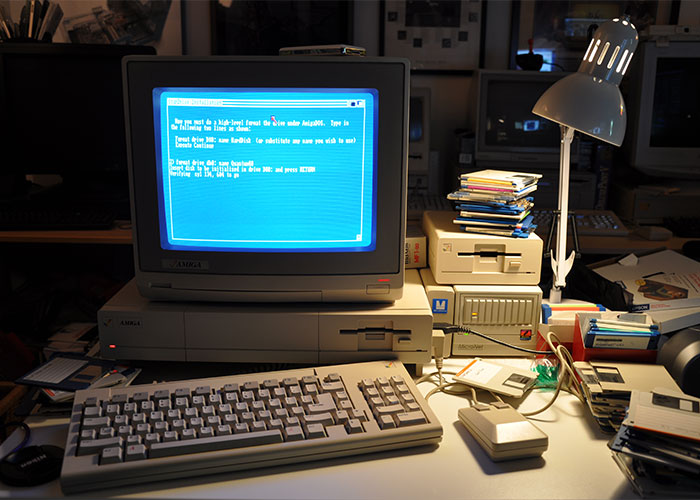 The hit counter on the bottom of webpages that told you how many people visited the page.
The hit counter on the bottom of webpages that told you how many people visited the page.
 An internet that didn't have any advertising.
An internet that didn't have any advertising.
I've been on the web since about 1994 and that wasn't a thing back then 30 years ago. Ads and Spam go back at least that far.
"This information consisted of webpages with crude graphics and layouts by today's standards but was incredibly new and impressive at the time. The computers that served these webpages were called web servers, and the worldwide collection of web servers was called the 'World Wide Web' (www) or 'Web' for short."
Eckert notes that mainstream media, sitcoms, and movies glorified computers and the Internet whenever they could, and he mentions the cult classic Hackers (1995) as an example. "Everyone knew that computers and the Internet were the future," he says. "Pundits and regular folk regularly speculated on what the Web would evolve into – including David Bowie."
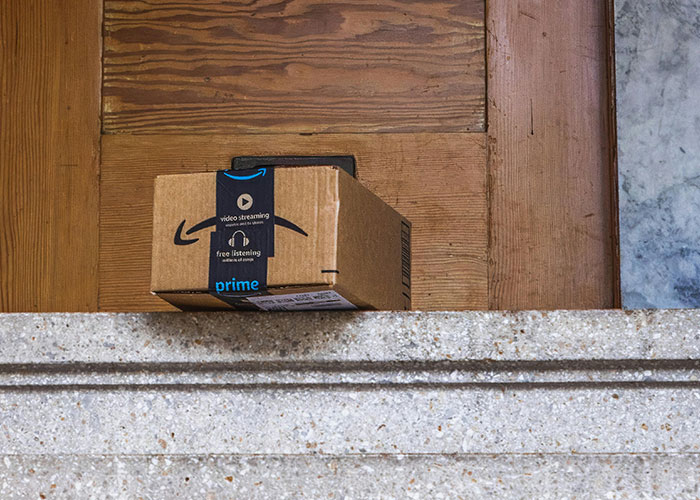 I remember when Amazon was just an online book store.
I remember when Amazon was just an online book store.
I remember when Amazon was dealing in books only, and they just launched Mechanical Turk, a crowdsourced task platform where you would get Amazon credit in exchange for completing some quick jobs (called HITs) like proofreading or image tagging. I got so much credit by doing HITs while commuting that I gave books for Christmas to anyone that year.
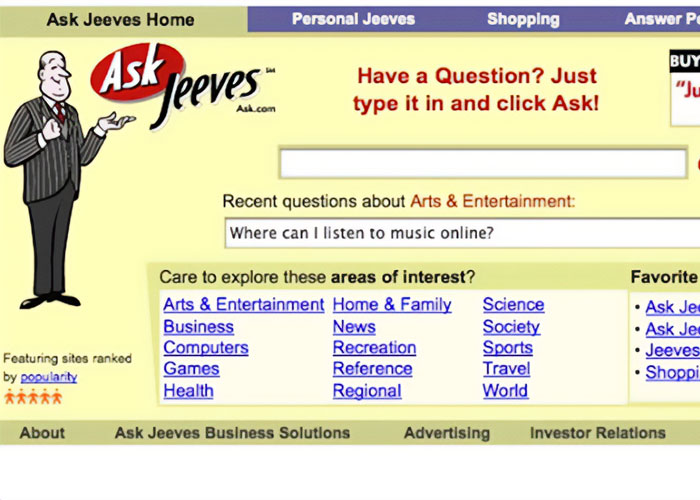 AskJeeves.
AskJeeves.
Before Google dominated there were so many search engines. WebCrawler, Lycos, AltaVista, Yahoo, DogPile, those are just the ones I can remember off the top of my head.
 Getting booted off the Internet when someone in the other room picked up the phone.
Getting booted off the Internet when someone in the other room picked up the phone.
Perhaps one of the biggest concerns of the modern Internet is data privacy (the recent Metaverse worldwide outage, for example). But what was it like back then, when the Internet was still in its infancy? Were there any such concerns or debates back then?
Eckert says yes: "Privacy concerns have been paramount since the 1960s, and the Internet added fuel to those fires, so to say. People talked about how governments and law enforcement had a new tool to abuse individual privacy and how telemarketers would migrate to using email and ads."
"And these concerns were even more so with those of us who worked in the tech industry. In 1999, Sun Microsystems' CEO Scott McNealy told reporters: 'You have zero privacy anyway. Get over it.'" I wonder, how would that go down nowadays, especially if we heard it from Mark Zuckerberg's lips?
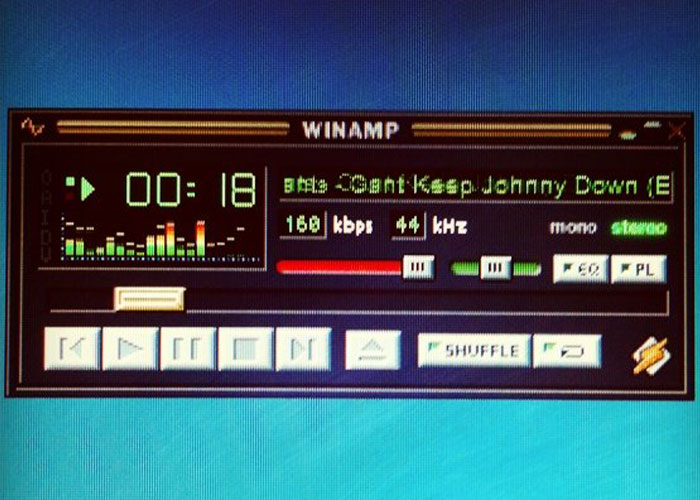 Winamp.
Winamp.
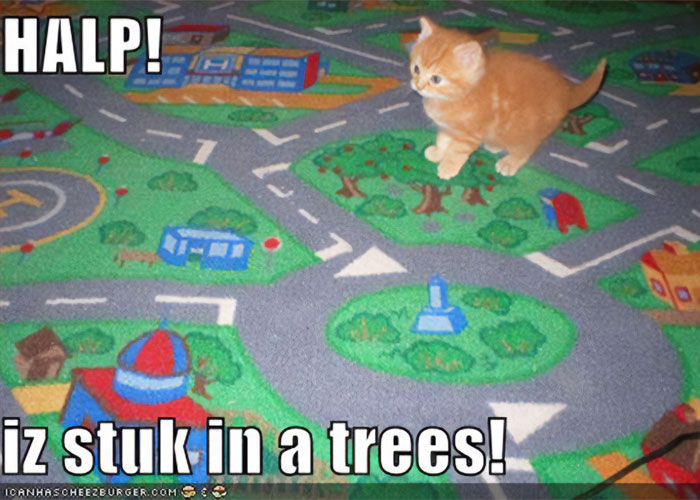 ICanHasCheezburger Its still around, but not the same at all. I can remember my mom and I howling and laughing together. She died twelve years ago and I still think about how much we fun we had with that website.
ICanHasCheezburger Its still around, but not the same at all. I can remember my mom and I howling and laughing together. She died twelve years ago and I still think about how much we fun we had with that website.
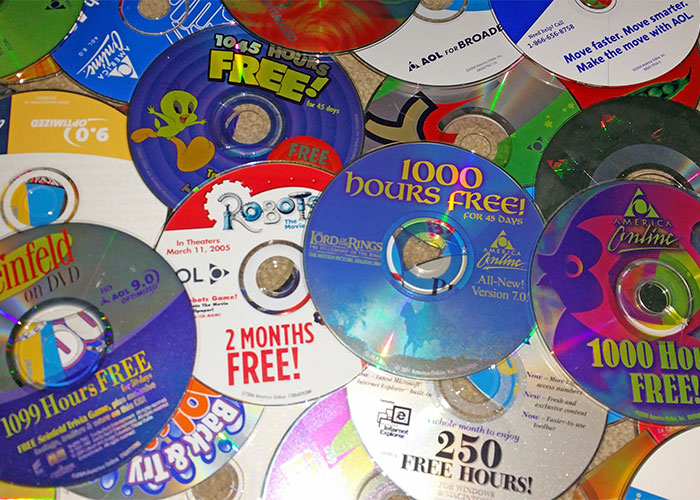 Getting internet in the mail.
Getting internet in the mail.
I had like a hundred different accounts cause i only used the free part.
For those who don't recall or are simply too young to remember, let's go through a couple of old Internet things. Dial-up internet, for example. Gen Xers seem to be so nostalgic about the modem sound. But how did it all work?
Long gone are the days when you needed a telephone line to have internet access at your home. Back in the '90s, you had to dial a specific phone number given by your internet service provider and establish a connection through a modem.
The computer then used the modem to convert digital data into analog signals that could be transmitted through a telephone line. The analog signals then went through the internet provider's equipment, which converted them back into digital data and connected the user to the internet.
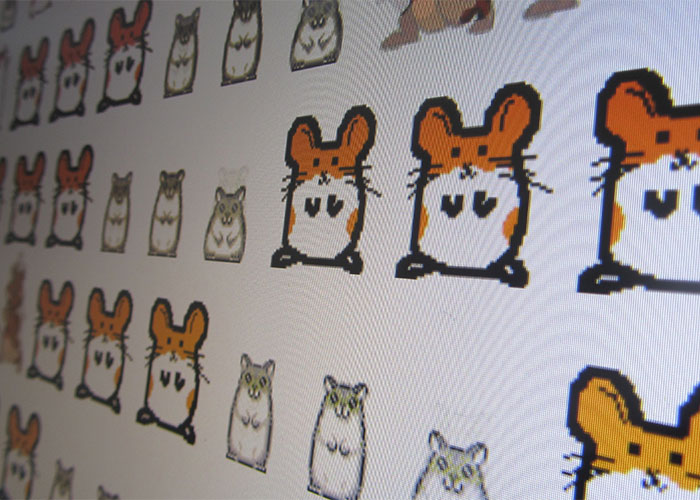 Hampsterdance
The ICQ "uh-oh!" noise
Guest books on websites. Sign my guest book!
Hampsterdance
The ICQ "uh-oh!" noise
Guest books on websites. Sign my guest book!
 Dancing baby.
Dancing baby.
Google also wasn't always the default search engine. What we today know as Ask.com was one Ask Jeeves. Reginald Jeeves was a fictional butler from P.G. Wodehouse's comics who would answer etiquette questions from his employer, gentleman Bertie Wooster.
This predecessor to Google, Alexa, and Siri is the brainchild of American venture capitalist Garrett Gruener. He came up with the idea of a virtual concierge in 1992 and launched Ask Jeeves in 1997. People asked Jeeves all kinds of questions, from how to get rid of skunk smell to where one can find the best hotel.
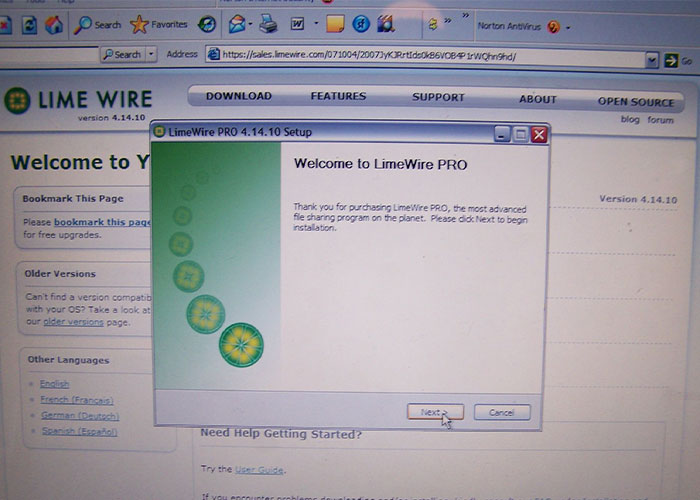 Limewire.
Limewire.
 --<-@ "Here's a rose for all the ladies here"
Man, we thought we were so f****n smooth in those chatrooms.
--<-@ "Here's a rose for all the ladies here"
Man, we thought we were so f****n smooth in those chatrooms.
Although other search engines like Yahoo! and Alta Vista were already popular, Ask Jeeves stood out with its quirky butler character. Why did people stop asking Jeeves? When the dot-com bubble burst in 2000, advertisers fled from web development. The company reportedly lost $425 million, and in the coming years, Jeeves morphed into Ask.com.
 Discussion boards for specific topics. (And not aggregated under the same website like reddit)
I have fond memories of these. I met a lot of cool people, some of which I'm still in contact with a good decade and a half later.
Discussion boards for specific topics. (And not aggregated under the same website like reddit)
I have fond memories of these. I met a lot of cool people, some of which I'm still in contact with a good decade and a half later.
Well back in the 90s we had UseNet. By the end of the 90s it was an unmoderated out of control hellscape. In the 2000s I got into several Web Forums that were highly moderated.
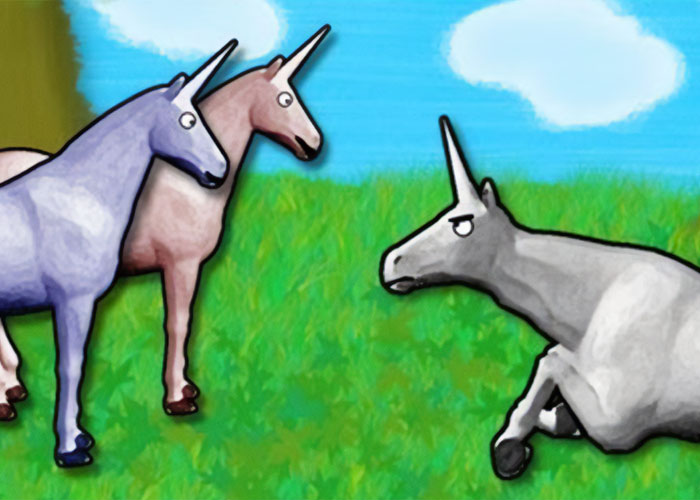 Charlie wake upp, you silly sleep head, wake up. We found a map, a map to candy mountain.
Charlie wake upp, you silly sleep head, wake up. We found a map, a map to candy mountain.
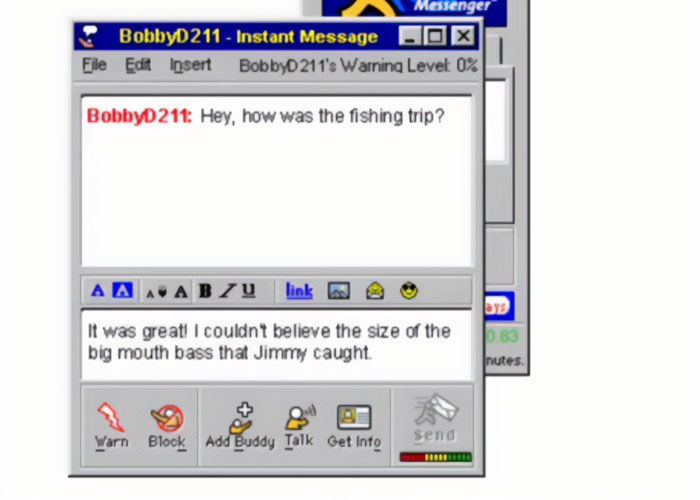 Instant messenger door opening noise.
Instant messenger door opening noise.
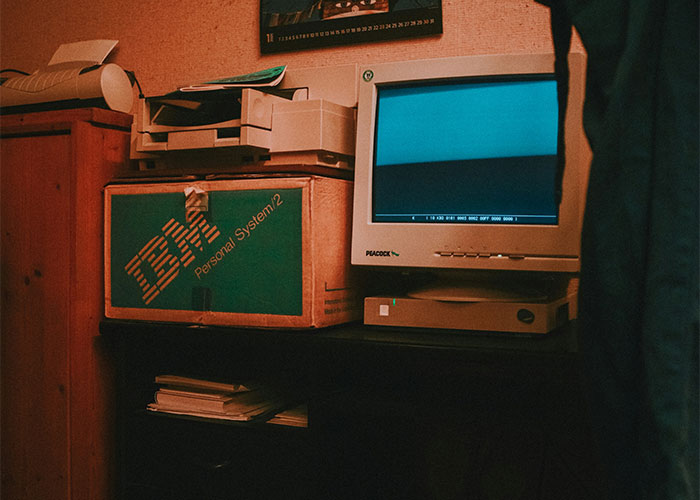 MSN messenger shaking and ringing a bell when your friends wanted your attention.
MSN messenger shaking and ringing a bell when your friends wanted your attention.
and which displayed the song you were listening to, what discoveries
 Learning basic HTML to pimp out your MySpace profile
Bumper stickers on facebook
Uploading a digital camera album of your night out
Leaving moody asf away messages on AIM.
Learning basic HTML to pimp out your MySpace profile
Bumper stickers on facebook
Uploading a digital camera album of your night out
Leaving moody asf away messages on AIM.
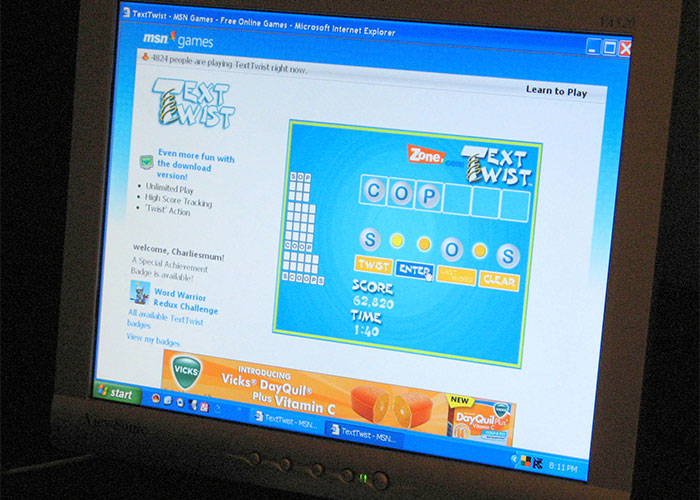 Flash games.
Flash games.
Or flash animations. Like how in a tree, the hare in the sports car. Et cetera!
 The Napster and Lars Ulrich drama.
The Napster and Lars Ulrich drama.
 Rotten.com. I remember checking out this site in internet cafes and hoping no-one else was looking in. Gross, but informative.
Rotten.com. I remember checking out this site in internet cafes and hoping no-one else was looking in. Gross, but informative.
Used to check this out when working at the ER with my colleagues. We usually didn't get anything as bad as what was on that site since, well, they were sadly well beyond our capabilities and more suited to the morgue. It was the most horrible site out there. I have no idea if it's still up, but I won't check. I intend to get a decent night of sleep.
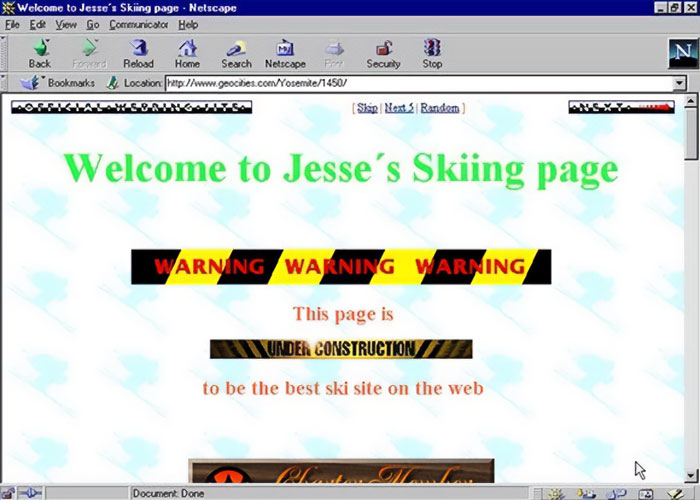 Home Made Angelfire Websites with Under Construction signs and Flaming Torches.
Home Made Angelfire Websites with Under Construction signs and Flaming Torches.
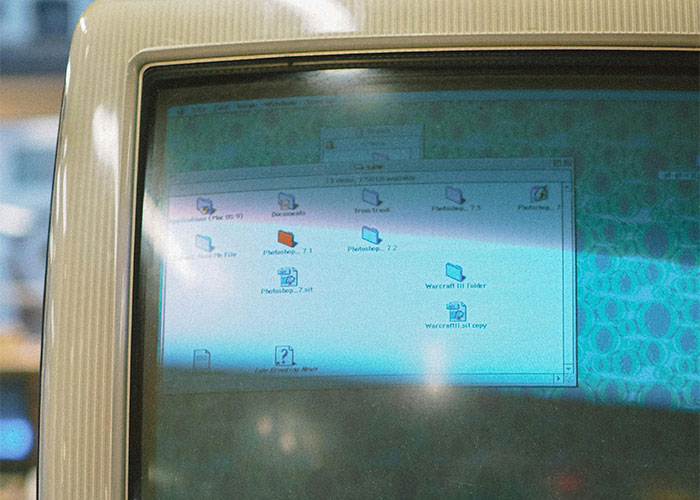 Treating chat rooms like real, physical places. Like, with an established setting and stuff. People would narrate what they’re doing in that space as they talked. Usually with a font or marker to designate the action: goes to the table and sips coffee.
Treating chat rooms like real, physical places. Like, with an established setting and stuff. People would narrate what they’re doing in that space as they talked. Usually with a font or marker to designate the action: goes to the table and sips coffee.
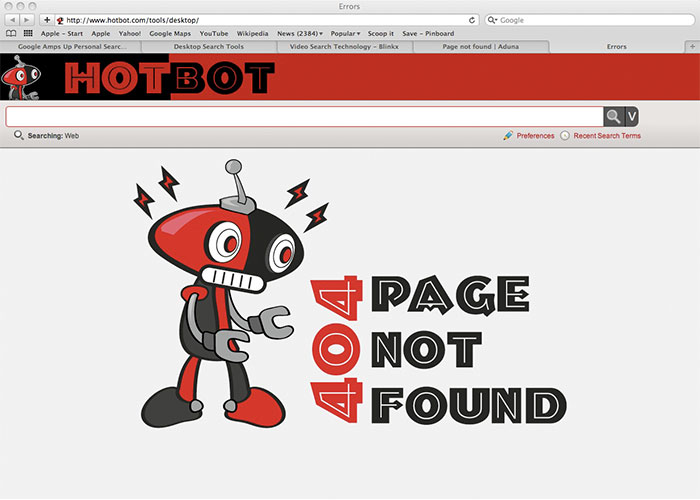 Google not existing
Netscape Navigator
Excite, HotBot, Lycos, Altavista, Webcrawler
Amazon is just an online bookstore
IRC
ICQ, AIM, MSN Messenger, Yahoo Messenger, Trillian
Yahoo Chatrooms
Yahoo Games
Usenet
AOL
CompuServe
Prodigy
NetZero
Edit: More below:
As u/TheOCDGeek reminded me, Juno (free email and later free internet). There were a ton of free internet services (dial-up) for a while. Most were backed by one company that I can't remember the name of.
About.com
Ask Jeeves
Metacrawler (get results from many search engines on one page)
Digg (Reddit before Reddit)
StumbleUpon
Webrings
Guestbooks to sign
Geocities (before it became Yahoo Geocities)
Tripod
Angelfire.
Google not existing
Netscape Navigator
Excite, HotBot, Lycos, Altavista, Webcrawler
Amazon is just an online bookstore
IRC
ICQ, AIM, MSN Messenger, Yahoo Messenger, Trillian
Yahoo Chatrooms
Yahoo Games
Usenet
AOL
CompuServe
Prodigy
NetZero
Edit: More below:
As u/TheOCDGeek reminded me, Juno (free email and later free internet). There were a ton of free internet services (dial-up) for a while. Most were backed by one company that I can't remember the name of.
About.com
Ask Jeeves
Metacrawler (get results from many search engines on one page)
Digg (Reddit before Reddit)
StumbleUpon
Webrings
Guestbooks to sign
Geocities (before it became Yahoo Geocities)
Tripod
Angelfire.
That awful, grating sound that no Human can ever perfectly replicate, that came out of your modem before your Internet connection would actually become stable.
 A/s/l.
A/s/l.
in France it was ASV (age, sexe, ville); it was so regular to send that, it makes me laugh to just imagine someone sending this now
Web Rings. Even people back in the day don't seem to remember them. They remember page counters, and guest books, but never the web ring... My Geocities pages had all of those.
Kids, let me explain you what a web ring is. Web rings were a workaround to make a website popular in the early days of search engine optimization. A website would be rated higher if it had a high count of links going in and out to other pages. So people quickly understood that if they wanted to boost their SEO they had to link to other websites, and be linked in turn. Pages sharing the same topic usually did it out of mutual help, but in some cases mildly famous websites had some steep requirements to allow your personal page to join the ring, to the point of asking for money. Being part of the ring of a page that was central to a fanbase or topic was a highly coveted honor and being removed could spell the end of a small website. This went on for a while after Google changed their rating system, because rings still brought some traffic, until it became synonymous with "old homemade page" and became cringe.
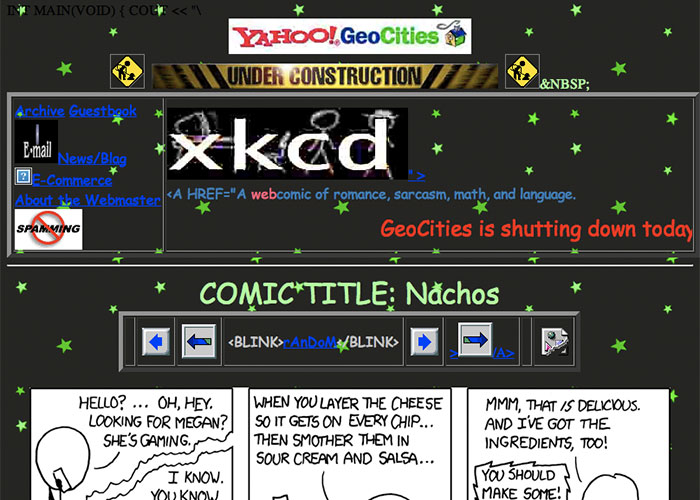 Angelfire/Geocities pages
I remember my friend was fancy, and made a page with frames, which now sounds like design hell.
Angelfire/Geocities pages
I remember my friend was fancy, and made a page with frames, which now sounds like design hell.
Usenet.
Usenet took a turn for the worst when it was integrated in Google Groups in the early 2000s. So many users stumbled into it without knowing the proper netiquette, something that up to that point was an issue limited to a few months in Autumn, when kids started their academic years and usually "discovered" the Internet in their colleges.
Compuserve.
 F****n' forum drama. No matter what forum you were on, there was guaranteed to be age old drama that every knew, mod infighting, maybe even a rival forum.
Some had all of that s**t and more. Before the internet was massive, s**t was petty.
F****n' forum drama. No matter what forum you were on, there was guaranteed to be age old drama that every knew, mod infighting, maybe even a rival forum.
Some had all of that s**t and more. Before the internet was massive, s**t was petty.
ohhhh before facebook, when we would talk about music on bands' forums. I made many many friends there that i would meat IRL at concerts! And drama, always so much drama, but mostly fun. Even more fun when you would find out the band was reading the forum too and would say stuff onstage that only the forum members understood :-D I miss those days!
But I'm le tired.
I use to have a joke with that command. Just record any sound file and put it under the right name on the AOL folder files. Quite surprising ^^
Load More Replies...What's Gen X to you? We were really the ones who were using this stuff originally, not Millennials.
GenX here I started university in 1993 and started using FTP chat to talk to people all over the world! And we had email and netscape!
Load More Replies...There's lots of people who don't know the difference between the internet and the web. The internet really started in the 1970s, with smaller, more localised systems going back into the early 60s. By contrast, the web became publicly accessible in 1991.
Thank you. When we did computer science history they talked about the "internet" being created/used from the early 1960s by the US Defence Department in case of nuclear war to enable the bunker people to talk to each other post-apocalypse and then it got expanded and morphed into "the web" as better technologies were built over time until we have the free for all it is today where it is 99% ads give or take a %
Load More Replies...I use to have a joke with that command. Just record any sound file and put it under the right name on the AOL folder files. Quite surprising ^^
Load More Replies...What's Gen X to you? We were really the ones who were using this stuff originally, not Millennials.
GenX here I started university in 1993 and started using FTP chat to talk to people all over the world! And we had email and netscape!
Load More Replies...There's lots of people who don't know the difference between the internet and the web. The internet really started in the 1970s, with smaller, more localised systems going back into the early 60s. By contrast, the web became publicly accessible in 1991.
Thank you. When we did computer science history they talked about the "internet" being created/used from the early 1960s by the US Defence Department in case of nuclear war to enable the bunker people to talk to each other post-apocalypse and then it got expanded and morphed into "the web" as better technologies were built over time until we have the free for all it is today where it is 99% ads give or take a %
Load More Replies...
 Dark Mode
Dark Mode 

 No fees, cancel anytime
No fees, cancel anytime 


